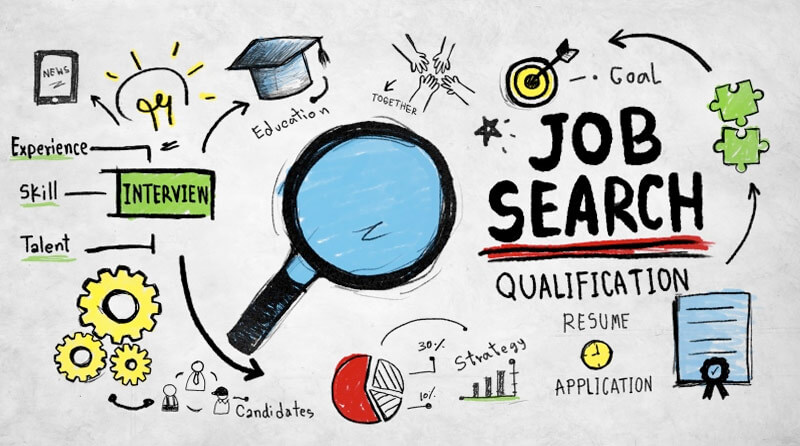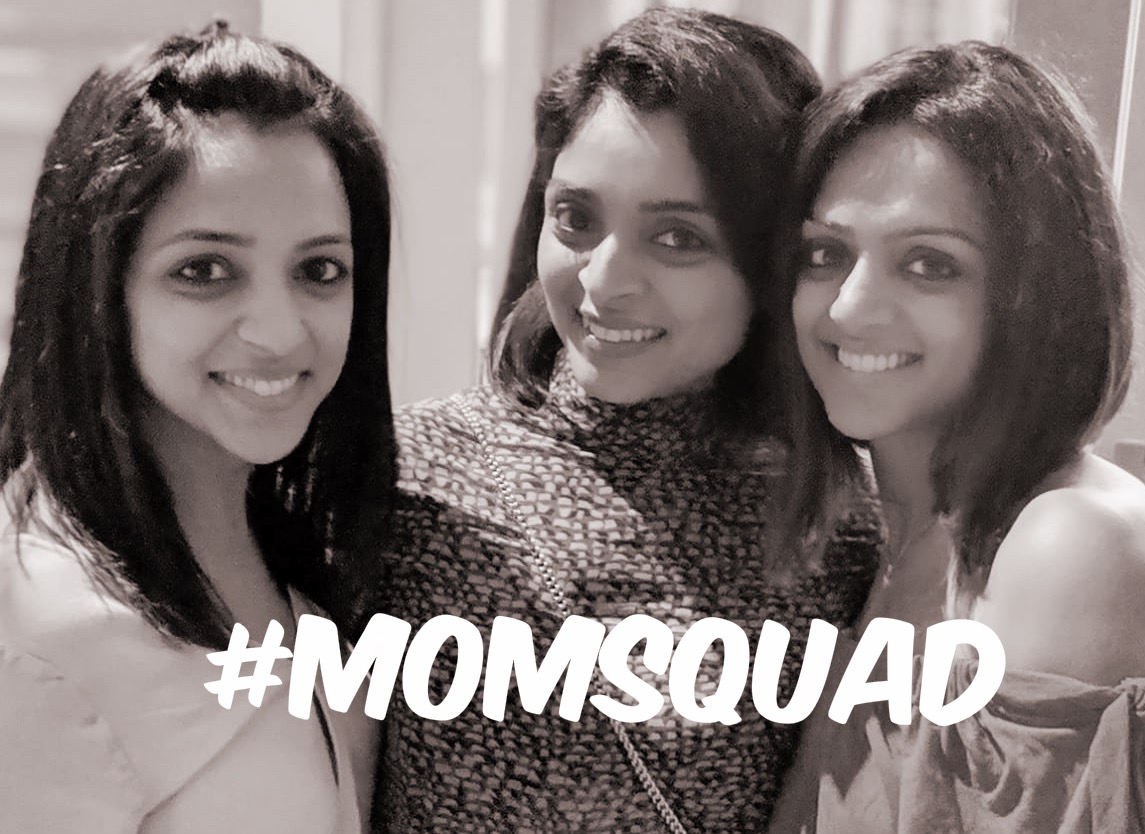As most of you know, whether through talking to me or following my Instagram, or reading my past blog post on staying positive, I was in the deep waters of job hunting for almost 9 months before landing my absolute dream job. For months I tried and tested every job tactic written about. I read hundreds of articles, attended a few seminars, joined all sorts of groups for every type of person I thought I was, and asked hundreds of questions to people who went through the same. After what felt like an eternity of rejection and disappointment, I finally got the call I so patiently (ok sometimes I wasn’t so patient) waited for. Knowing that I’m definitely not the first or last person to go through this process, I felt compelled to share what worked for me in the job hunt and what rendered zero results.
First a little background: I’m an attorney of 6 years. I started out with a clerkship, then private practice, then went to Geico and did insurance defense before I gave birth to my first boy. After my 8 weeks of maternity leave were up, I couldn’t leave Diav so I decided to take time off work to be with him. 2 years later I had Kallan and wanted to give him the same amount of time I gave D. Knowing that the process wasn’t going to be easy, a few months before Kallan turned one, I started my job hunt. I was still home with Kallan full-time so a lot of my job search happened during naps and after the kids went to bed, or when I got little pockets of time to browse.
Ok so lets get down to business. Here is my list of things that worked, which means things I did that landed me an interview even if I didn’t get the job in the end.
- LinkedIn (I could write a whole post just on LinkedIn but here are the big ones)
- Get the Apps: Get the Linkedin App and the Linkedin Job Search App. You never know when you’re going to get some free time to search the job market so why not make it super easy for yourself and get the apps on your phone? You can set your search criteria and your ideal jobs will be there in a list waiting for you on the app. It’ll also alert you if new jobs that match your criteria pop up! The only thing I didn’t do is “easy apply” from my phone – I couldn’t update my resume for each job when I easy applied so if I did find a job I wanted to apply to I would save it and come back to it when I was on my desktop and could add an updated resume (more on that below).
- Update Your Profile: this should actually be number 1 on the list but I put it after getting the apps because you can update your profile on the apps ;). Don’t be lazy and just put your company and job title. Take the time to fill in descriptions and skills because people who are hiring are going to look to see if you have the basic skill set they’re looking for!
- Connect with as Many People as Possible: if you’re laying in bed, browsing Instagram, take a small break and browse the “suggested connections” section of LinkedIn and connect with as many coworkers, friends, people you just met, etc. Build a network – it doesn’t get any easier!
- Mark Yourself as an “Open Candidate”: I got a lot of e-mails and phone calls by recruiters who saw that I was open for opportunities. Some didn’t apply to me at all and some hit the nail on the head. It’s worth talking to recruiters even if you think the job has nothing to do with what you’re interested in.
- Search for Connections at Companies You’re Applying to: every time I saw an opening at any company I would first go to LinkedIn and see if I knew anyone who worked there. If I did I would talk to that person about the position, the company, and see if they were willing to put in a good word for me. This particular tip definitely had a big impact in landing me the DAG position. And honestly, you’d be surprised at how willing people are to help you get a job – so don’t be shy and reach out!
- Editing my resume for each job: I had one master resume that I used and updated every time I applied to a new job. When applying I would look at the job description and pick out buzz words that I could fit into my resume. For example, while in law school I was in a mediation clinic where we represented a client suing the NY DOT for discrimination. If the job focused on conflict resolution I would highlight that portion of the mediation clinic in my resume, and if it focused on representing people who felt discriminated against I would highlight and expand that area of the clinic. If it was a litigation job I would delete the clinic entirely and expand my defense litigation positions and add more buzz words there. Every job required a little tweaking of the resume – of course everything was true, it was just what was emphasized that changed per application.
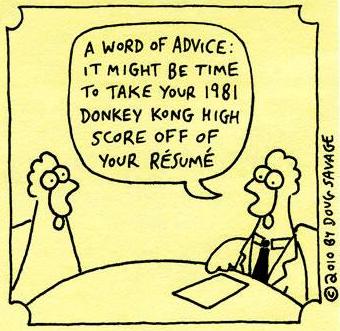
- Kick ass cover letter: Do NOT underestimate your cover letter. When I went in for my first interview, the interviewer didn’t even look at my resume. He focused entirely on my cover letter, which kind of threw me off my game because I had mentioned taking time off to be with the kids and I didn’t expect to really talk about that in my interview. He didn’t ask specifics (before everyone starts freaking out) but instead he thought it was “admirable.” But what I’m trying to say is don’t get lazy on the cover letter.
- References at companies: Ok so this one is tough because it worked in certain situations and didn’t work in others. As I said above, every time I applied to a company, I would look to see if I knew anyone there through some LinkedIn stalking. The times this worked in getting me an interview was when the person would talk to the hiring manager directly as opposed to going through the company’s referral process. I had some amazing friends, co-workers, acquaintances go out of their way to talk to the recruiter and hiring manager about the position I was applying to and 9/10 times that got me through to an initial phone interview. If they didn’t know the hiring manager or recruiter and went through their company portal 9/10 times I didn’t hear back at all.
Ok, so now that you know what worked, here are a few things I wouldn’t waste my time on knowing what I know about the job search:
- Networking with people I didn’t know: People are going to kill me for this one. I know some people (especially lawyers) think there is nothing more productive than networking with anyone and everyone inside and outside of your industry. First of all, I hate networking with people I don’t know. I’ve become increasingly worse at small talk now that I have 2 toddlers who need me to get to the point ASAP. I also don’t like feeling pressured to impress the person I’m talking to so that they like me enough to refer me to someone who knows someone who just might be able to talk to someone at the company I want to work at. I love attending events where I get to catch up with colleagues I worked with or friends I know from back in the day. But the “act” I have to put on to network is not my thing. (Oh gosh, I hope my dad isn’t reading this, he is the KING of networking and everyone loves him for it.)
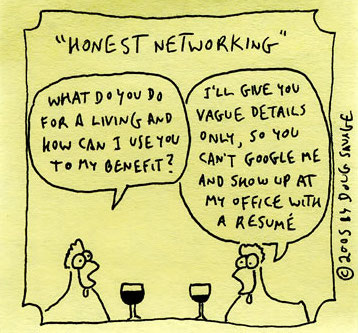
- Blind apps through company portal: this shouldn’t come as a surprise to anyone who has ever applied to a job in their lives. Applying on a company’s website through their job search portal rendered 0 (ZERO) leads. Not a phone call, not an e-mail, not a thing. So don’t even bother. Go the other route and look for someone at that company or someone who knows someone at the company (you can do that on LinkedIn).
- Follow-up with application: I don’t mean actually following-up with my application, I mean looking for where to follow-up! When I applied through references or on the company site, I never was able to find a person to follow-up with! I just waited in the dark until I got an automated “we found someone else” e-mail.
When I did finally get an interview, here are some things that helped me land the job and some that I probably should have worked on:
- Research!: With government jobs you usually get about 3 weeks advance notice for an interview so that was good and bad. It was good because I got to prepare a LOT. It was bad because I also over-prepared and psyched myself out! When researching, I relied on sites like Glassdoor and of course LinkedIn to give me any sort of insight as to what the interview was going to be like. As for researching the position, I spent a lot of time on the OAG’s website researching the different sections of the office and knowing a little bit about each section as I knew that was going to be one of the questions (if not your preferred section, which other?). I also researched the people that were going to be interviewing me. I looked them up on LinkedIn and then Googled them and read up on each person and jotted down some noteworthy points on each.
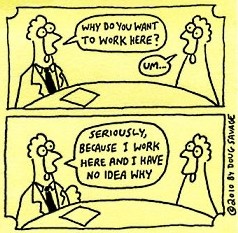
- Preparing examples of your work based on job description. This method of preparation I learned from Sach who is a great interview”er” and “ee.” He always helps me prep by making me think of specific examples that relate to the job. For instance, when they talk about having a heavy caseload I talk about my time at Geico where I handled 70 cases and created a organization system that tracked each case and deadlines, etc. When they talk about steep learning curves I talk about starting at a medical malpractice firm with zero medical knowledge and being able to tackle that curve in a short amount of time. I usually keep a bank of 4-5 examples that I can tailor to different topics so that I can really show the interviewer that I’m not full of it, I actually can do this job.
- As cliche as it sounds, practice strengths and weaknesses. I have 2 of each that I practice every interview I have. It’s in the STAR method so in the end my weakness is overcome. I also don’t use a weakness if it’s one of the requirements in the job description (!). Out of every interview I’ve ever had, I’ve probably hit these answers 90% of the time. So I’d definitely practice those.
- Prepare questions for interviewer: I always had a hard time with this part because I rely on the conversation to lead me to questions. But sometimes you can be so happy with the way an interview goes that you don’t have any questions. I would definitely force yourself to come up with questions before you walk into that room. My interviewer for the AG’s office asked me about 5 times if I had anymore questions and thankfully I had about 3 pre-planned ones and others came from conversation. But after he asked me the 5th time I had to say “I think you’ve answered all the questions I had,” which I hate doing!
- One thing I failed on completely this round of job hunting was being prepared for a structured interview. One of my interviews was a series of 30-40 questions that were entirely preplanned and there was no room for conversation at all. I had never been through such an interview and I had no idea that it was going to be this way so my preparation didn’t do anything for this interview. All the questions were behavioral and I just didn’t have enough examples to answer them all honestly. I found myself repeating some examples multiple times and trying my best to hit the buzz words in the question but it was so overwhelming that it threw me off completely. I walked out of that interviewing knowing I didn’t get the position but realizing that I needed to be prepared for anything next time. After this interview I researched a bunch of behavioral interview questions and tried to come up with small examples of each incase I ever had an interview like that again!
Ok so now that I’ve shared all my tips and secrets with you about how I landed my dream job, you have to tell me what you’ve been doing to get yours! I would LOVE to help you land the job of your dreams! But, just incase this post was too long to read and you skipped right to the bottom, let me leave you with this one thing… STAY POSITIVE. I know there is no bigger hit to the ego, soul-crushing task than to job hunt. So, try to stay positive and I really encourage you to share your story because I truly think that has helped me more than anything in uplifting my deflated spirit.
Cartoons by Savage Chicken.

